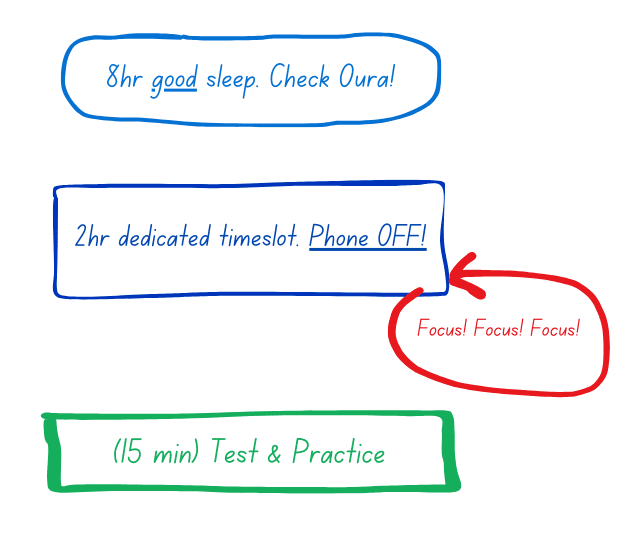The Science of Effective Learning

The Five Key Principles of Effective Learning
1. Prioritize Quality Sleep
When studying complex material that pushes you beyond your comfort zone, sleep is crucial - both before and after learning sessions. Research shows that cognitive performance declines without adequate rest, making it difficult to absorb new information. Moreover, sleep plays a vital role in memory consolidation, ensuring that newly acquired knowledge is stored deeply in the memory.
2. Allocate Dedicated Learning Time
A study analyzing 700 medical students identified key strategies for effective learning, with time allocation being paramount. The key is to schedule dedicated learning sessions, preferably in the morning when the mind is freshest. A structured two-hour session or two 90-minute slots with a 15-minute break in between is typically sufficient for deep learning.
3. Maintain a Consistent Study Schedule
Consistency enhances cognitive adaptation. By studying at the same time each day, your body and mind acclimate to the routine, optimizing focus and retention. This habitual structure helps the brain to get ready for deep intellectual engagement.
4. Minimize Distractions
Deep learning requires full attention. To maximize productivity, study alone in a quiet environment, free from distractions. Turn off your phone, avoid social media, and inform those around you that you are unavailable during this time. Maintaining focus requires effort. Yes it's hard, but consistently redirecting your attention to the material strengthens concentration over time. You will be suprised by how much your attention span increases.
5. Implement Active Recall Through Testing
According to neuroscientist Andrew Huberman, testing is one of the most effective ways to reinforce learning and combat forgetting. He references a study from 1917 where two groups of students studied history material. The first group repeatedly read the material, while the second group read it only once but then individually analyzed and reflected on it. The latter group significantly outperformed the former in retention and comprehension.
To apply this principle, reserve the last 15 minutes of each learning session for self-assessment. Ask yourself: What are the key takeaways? or Where can I apply this knowledge immediately? This practice strengthens neural connections and prevents forgetting.
Final Thoughts
To summarize, effective learning hinges on five key principles:
- Get sufficient sleep
- Schedule dedicated study sessions, preferably in the morning
- Maintain a consistent learning routine
- Eliminate distractions
- Regularly test your knowledge through self-assessment
Learning is undoubtedly challenging, but it is also a skill. The more you engage in structured learning, the better you become at it. Mastering the ability to learn efficiently is, perhaps, one of the most valuable skills in the age of AI.
